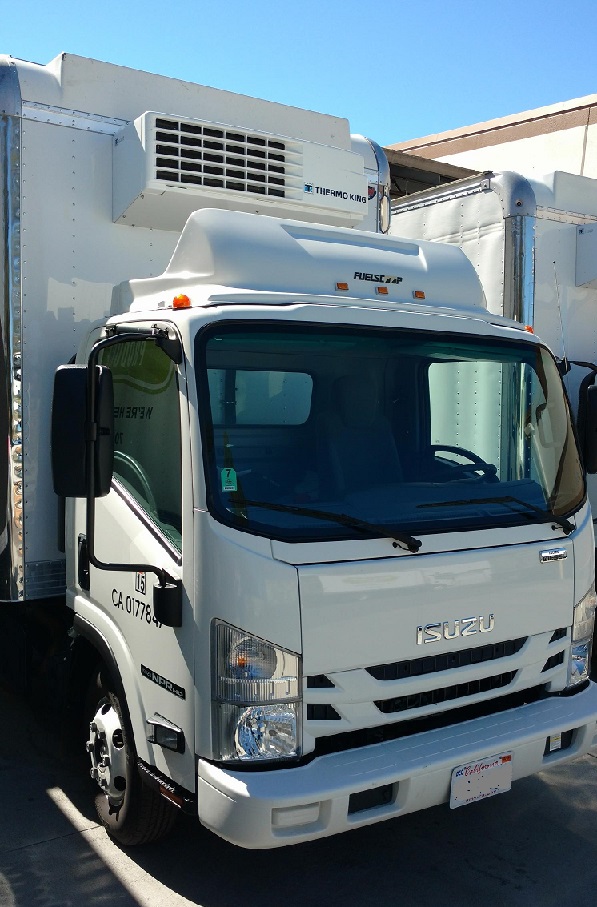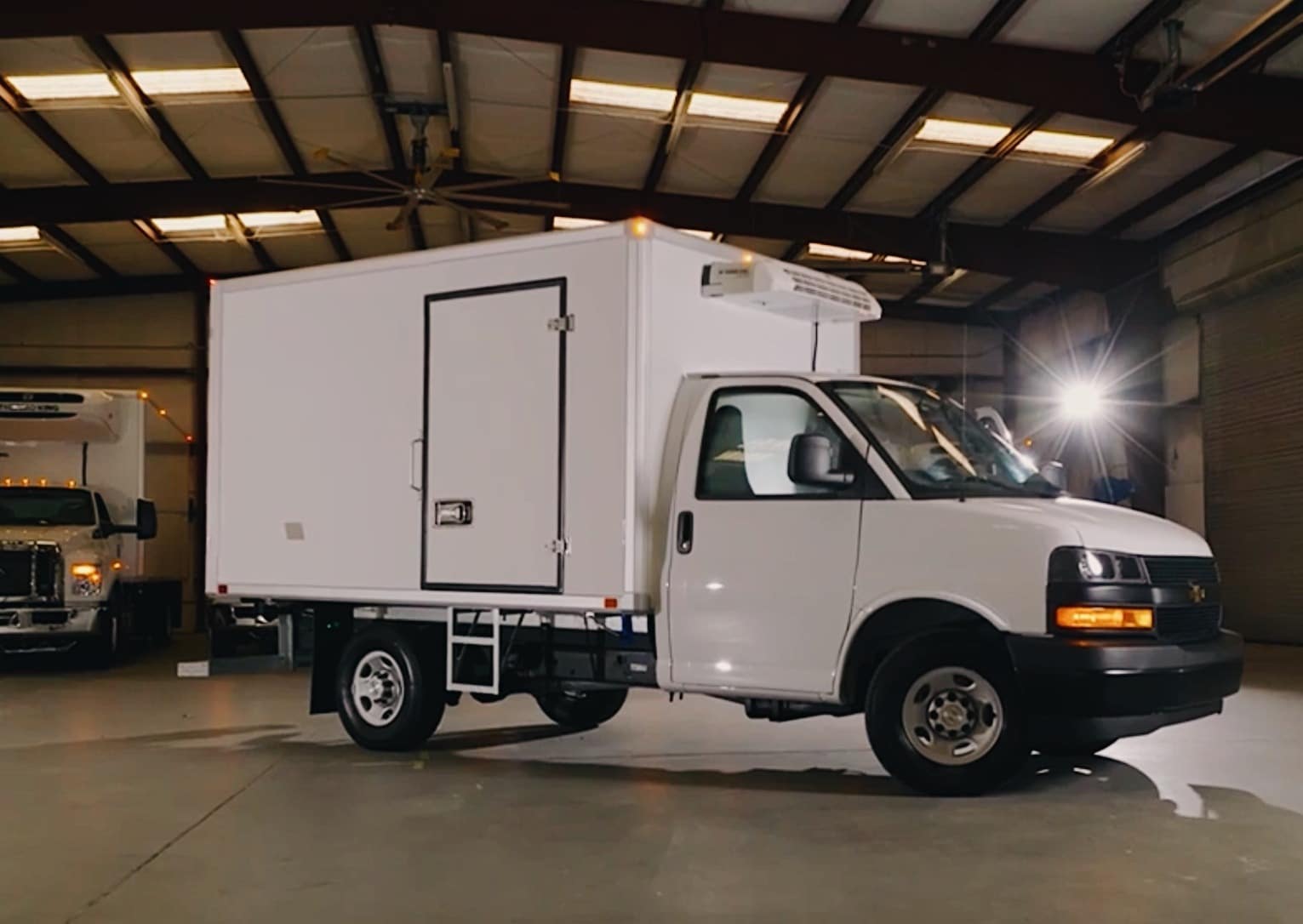Choosing the Right Transport Refrigeration System for Your Fleet
Choosing a proper transportation refrigeration system for your fleet is an essential choice that can dramatically influence functional effectiveness and product stability. It necessitates an extensive understanding of your particular refrigeration requirements, including temperature level needs and shipment routines.
Recognizing Your Refrigeration Needs
When selecting a transport refrigeration system, recognizing your details refrigeration needs is critical to making certain item quality and compliance with sector standards. Various elements should be thought about to establish one of the most ideal system for your procedure. These include the sort of items being moved, their temperature requirements, and the duration of transportation.
For perishable goods, such as fresh fruit and vegetables or drugs, exact temperature level control is critical. Recognizing the temperature level range needed for every product enables for the choice of a system that can preserve those conditions regularly. Additionally, consider the frequency of distributions and the range took a trip; longer journeys may require systems with improved insulation or backup power options to avoid temperature level variations.

Additionally, the capacity of the refrigeration system need to align with your tons dimension. Overloading a system can bring about insufficient cooling, while an extra-large system might be inefficient and costly. Lastly, regulative conformity is important; familiarize on your own with neighborhood and global standards regulating the transportation of temperature-sensitive items. By completely analyzing these factors, you can make certain that your selected transport refrigeration system effectively satisfies your functional demands and preserves item integrity.
Kinds Of Transport Refrigeration Equipment
Choosing the right sort of transport refrigeration system is essential for making certain the safe transportation of temperature-sensitive products. There are several systems offered, each developed to satisfy certain needs and applications.
One of the most common types consist of direct growth (DX) systems, which use cooling agent to soak up warmth and cool the freight area properly. These systems are usually favored for their performance and reduced preliminary prices. An additional option is the central refrigeration system, which offers numerous areas or lorries from a single compressor device. This is specifically advantageous for bigger fleets needing regular temperature control throughout numerous transport systems.
In addition, there are self-supporting refrigeration devices that incorporate the compressor and evaporator in one bundle. These devices are ideal for smaller sized vehicles or when room is restricted. For specialized applications, such as transferring pharmaceuticals or perishables, cryogenic refrigeration systems might be made use of, utilizing liquid nitrogen or co2 to maintain ultra-low temperatures.
Finally, hybrid refrigeration systems that integrate electric and diesel power are becoming progressively popular, offering flexibility in power usage and decreasing environmental impact. Comprehending these different types allows fleet operators to make informed choices tailored to their certain functional needs.
Key Features to Take Into Consideration
How can one make sure that a transportation refrigeration system satisfies all operational needs? To attain this, a number of key functions have to be thoroughly examined. First of all, temperature control is vital; systems ought to offer accurate temperature level setups to accommodate different products, varying from iced up goods to subject to spoiling things.
Power effectiveness is another crucial factor to consider, as it impacts functional expenses. Look for systems that use innovative modern technology, such as variable speed compressors, to maximize energy use without jeopardizing efficiency.
Another feature to assess is the dependability and toughness of the devices. Solutions built from high-quality products and designed for durability against extreme conditions will certainly minimize upkeep costs and downtime.
Additionally, the simplicity of maintenance and ease of access of parts can substantially affect functional efficiency (reefer trucks thermo king). Functions like modular styles or remote tracking abilities can streamline service procedures
Last but not least, compatibility with existing fleet management software application can improve monitoring and reporting processes. By concentrating on these essential attributes, fleet drivers can guarantee that their transportation refrigeration systems not only fulfill current needs but likewise adjust to future demands.

Budgeting for Refrigeration Solutions
Assessing essential functions of transportation refrigeration systems is only one part of informative post guaranteeing functional performance; budgeting for refrigeration solutions is equally important. A well-structured budget not just encompasses the initial purchase cost however likewise takes into consideration lasting operational costs, including power usage, upkeep, and possible repair work requirements.
When establishing a budget plan, fleet supervisors need to initially evaluate the complete price of ownership (TCO) This consists of not just the purchase expenses yet likewise ongoing costs associated with fuel efficiency and the durability of the refrigeration devices. Choosing systems with higher power efficiency rankings may yield significant financial savings with time, alleviating in advance prices.
In addition, fleet operators should account for possible scalability. As companies grow, the refrigeration needs might transform, demanding upgrades or additional units. Planning for these future expenditures can prevent monetary pressure.
Funding choices can also play a vital function in budgeting. Leasing, fundings, or straight-out acquisitions each have unique monetary ramifications, and comprehending these can assist in making an informed great post to read decision. Eventually, a detailed budget plan that considers both future and prompt needs makes sure that transport refrigeration systems contribute positively to the general functional efficiency of the fleet.
Maintenance and Support Options
In the world of transportation refrigeration systems, effective maintenance and support alternatives are vital for making sure optimum efficiency and durability. Regular maintenance is important to stop failures and keep the stability of temperature-sensitive freight. It is recommended to establish a routine inspection timetable with qualified service technicians who can execute required checks and repair services on refrigeration units.
Support options ought to include a robust service agreement, covering both regular maintenance and emergency repair services. This ensures that your fleet has accessibility to prompt help, reducing downtime and preserving operational effectiveness. Many makers offer extensive support packages that include training for your team, allowing them to do standard troubleshooting and maintenance tasks.
Additionally, using remote surveillance modern technology can boost your upkeep approach - thermo king truck refrigeration units. These systems supply real-time information on temperature level and efficiency, permitting positive steps prior to issues rise. Investing in training and technology not only enhances your fleet's dependability yet also prolongs the lifespan of your refrigeration systems
Inevitably, a strategic strategy to upkeep and assistance will certainly secure your investment and Extra resources ensure that your transport refrigeration systems run at peak effectiveness, providing consistent results for your business.

Final Thought
Finally, picking the ideal transport refrigeration system for a fleet demands a thorough analysis of particular refrigeration needs, system types, and vital features. Prioritizing operational performance, power intake, and upkeep considerations is essential for guaranteeing integrity. Additionally, mindful budgeting and preparation for future scalability will contribute to the lasting success of the refrigeration technique. Ultimately, a well-informed choice will certainly boost product integrity and optimize total logistics operations within the fleet.
Selecting a proper transportation refrigeration system for your fleet is a crucial choice that can substantially affect operational efficiency and product honesty.When choosing a transportation refrigeration system, recognizing your details refrigeration requirements is extremely important to making sure product high quality and compliance with industry criteria. By extensively assessing these elements, you can ensure that your selected transport refrigeration system properly meets your operational needs and maintains product stability.
Inevitably, a comprehensive budget plan that takes into consideration both future and instant demands guarantees that transport refrigeration systems contribute favorably to the general functional performance of the fleet.
In final thought, selecting the suitable transport refrigeration system for a fleet requires a thorough assessment of details refrigeration requirements, system kinds, and necessary attributes.